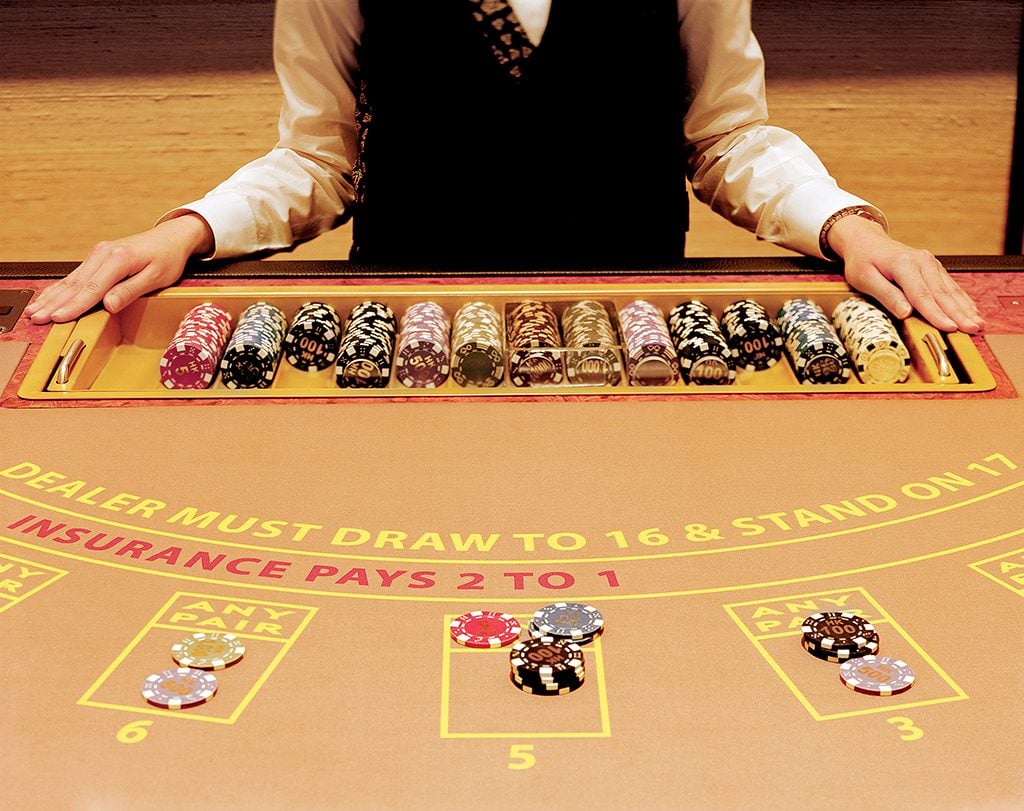A Typical Day in the Life of a Gaming Game Operator

Within the dynamic world of gambling halls, where the atmosphere humms with enthusiasm and the clattering of chips fills the environment, the role of a game dealer is both essential and fascinating. Each day, these skilled professionals step into a world where luck and strategy converge, leading players through the ups and downs of their chosen casino games. From table games like blackjack and texas hold 'em to the spinning wheels of the roulette table, dealers facilitate the action while ensuring that each game runs smoothly and honestly.
As the sun rises on another hectic day, a casino dealer prepares to dive in this dynamic environment. Their responsibilities extend beyond just distributing the cards or spinning a wheel; they are also performers, customer service representatives, and guardians of the game regulations. 58win Each shift brings new challenges and interactions, making every day unique in the life of a casino dealer. This behind-the-scenes look will explore the daily routine of a casino game dealer, showcasing the skills and insights that make this career both exciting and rewarding.
The Role of a Casino Game Croupier
A casino table croupier is at the heart of the gaming experience, managing the progress of the play while ensuring that players are engaged and enjoying themselves. Their main responsibility is to manage the table, which involves dealing cards, rotating the wheel, or handling the chips, based on the game being played. Croupiers must possess a deep understanding of the regulations and guidelines governing each type of game, while also maintaining a friendly and approachable demeanor to enhance the gaming atmosphere.
In addition to managing the play, croupiers must also keep a close watch on the players and the environment around the table. This includes monitoring for any signs of cheating, making sure that everyone is adhering to the rules, and resolving any disputes that may arise among players. Strong communication skills are vital, as croupiers often provide explanations about the rules and mechanics and offer assistance to those who may be new to casino games.
Furthermore, a dealer's role extends past just the mechanical aspects of the game. They play a key part in creating an enjoyable experience for the players. This requires establishing a rapport with patrons, being sensitive to their needs, and often injecting an aspect of entertainment into the game. It’s this mix of skill, alertness, and interpersonal relationship that makes the role of a gambling table croupier both demanding and fulfilling in the dynamic world of casino games.
Daily Responsibilities and Challenges
One of the main responsibilities of a dealer in a casino is to supervise the multiple games available at their table, ensuring a seamless and enjoyable experience for players. Dealers must be proficient at dealing cards, handling chips, and maintaining the continuity of the game. This requires a deep understanding of the regulations of each game, from blackjack to roulette, and the ability to answer players' questions while keeping the game progressing. Attention to detail is paramount, as dealers must monitor bets, pay out winnings accurately, and watch for any cheating or discrepancies at the table.
In addition to managing the game itself, dealers encounter challenges such as managing difficult players. The casino environment can be high-pressure, particularly during high-stakes games, and a dealer must remain calm and maintain professionalism at all times. They need robust interpersonal skills to handle interactions with players who may be upset about losses or dissatisfied with the game's speed. Navigating these situations delicately is crucial in creating a friendly atmosphere on the casino floor.
Another major responsibility is maintaining the honesty of the game. Dealers must be vigilant and attentive, watching for any signs of collusion or cheating among players. This entails not only a strong knowledge of the games but also an awareness of human behavior. They must also follow the casino's regulations and procedures, taking part in regular training sessions to stay informed on rules and protocols. Balancing these responsibilities while providing excellent customer service is what makes the role both difficult and fulfilling for a casino game dealer.
Skills and Traits for Success
A effective casino game dealer must demonstrate excellent communication skills. This includes not only the ability to effectively explain game rules and procedures to players but also the capacity to engage with them in a friendly and respectful manner. Fostering rapport with customers can enhance the gaming experience and encourage repeat visits to the casino. Effective communication enables dealers to manage tables smoothly while ensuring that players feel entertained.
Furthermore, robust mathematical skills are essential for a dealer. Quick calculations are often required to monitor bets, payouts, and game outcomes in the moment. A dealer’s ability to perform these numerical tasks accurately and swiftly contributes to the overall efficiency of the game. This skill helps in maintaining the flow of play and in minimizing disputes or misunderstandings with players, which is crucial in a dynamic casino environment.
Lastly, an ideal casino game dealer should exhibit integrity and professionalism at all times. Trust is a vital component of the gaming experience, and players must feel assured that the games are conducted equitably and clearly. A dealer's dedication to upholding high ethical standards fosters a welcoming atmosphere at the table and enhances the casino's standing. Being consistent in behavior ensures that dealers leave a memorable impression on guests, which can lead to a faithful customer base.
